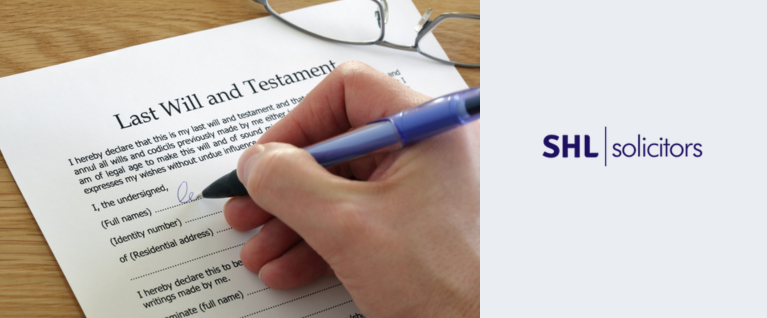Nobody likes to think about what happens when they die. But due to the current inheritance tax threshold – and the impact it could have on your loved ones – it’s more important than ever.
In 2021, the threshold of £325,000 was frozen until 2026. However, last year, the government announced that it was extending the policy even further until April 2028.
The consequences of this could be catastrophic for many people.
According to recent HMRC forecasts, an additional 50,000 families will be dragged into paying inheritance tax (IHT) as a result. And over 280,000 households across the UK now face the prospect of a higher inheritance tax bill due to this harsh seven-year threshold freeze.
A cruel tax that comes at the worst possible time
The IHT threshold has certainly received a lot of criticism over the last few years.
Described as unfair and archaic, it’s been accused of ‘openly penalising aspiration and saving’ and has earnt its place as one of the most hated taxes in the UK – and it’s easy to understand why.
Any assets that fall above £325,000 are taxed at 40%.
The problem is – this threshold has remained exactly the same since 2009. During that time, house prices have risen, wages are now higher, and inflation has increased. Therefore the value of people’s estates has grown. In theory, the IHT threshold should have gone up to reflect these changes. And if it had, it would currently stand at around £710,000. But of course, this isn’t the case.
More and more estates have now risen above the cut-off. In fact, the number of estates set to pay the tax from 2021-28 is predicted to be 63% higher than the previous seven years. And around 50,000 people will be forced to pay a hefty bill – who, technically, shouldn’t have to pay anything at all.
To add insult to injury, families are also often expected to pay this bill before probate has been granted, which can leave them struggling to source the money. Many find themselves either getting a short-term bank loan or paying for it out of their own funds. An extra stress that nobody needs whilst grieving a loved one.
How to avoid inheritance tax
Downing Street has recently held talks about abolishing inheritance tax completely, mainly because it would be a way to attract voters before the next election. However, as yet, nothing has been confirmed.
If your estate is currently worth more than £325,000 and you believe you could be one of the thousands of unlucky households affected by the IHT threshold freeze, now is the time to seek professional advice on inheritance planning.
There are actually several legitimate ways to help reduce your bill – or even avoid inheritance tax altogether. So it’s certainly worth speaking to a specialist to help you plan ahead.
3 of the main ways to avoid inheritance tax
1. Make a will
This can be beneficial in numerous ways.
Firstly, if you leave your estate to a spouse, they will qualify for a ‘spousal exemption’. This allows the full value to be transferred, free from inheritance tax. And when your spouse passes away, they will benefit from your unused IHT allowance, meaning they can pass on £650,000 completely tax-free.
Secondly, by leaving your home to your children, you can take advantage of the ‘property allowance’. This increases your personal threshold by £175,000 – meaning you can pass on an estate worth up to £500,000 without paying IHT. For a married couple, the combined allowance increases to £1m.
Thirdly, you can bring the value of your estate below the threshold by leaving money to a UK-registered charity. This money doesn’t count towards the total taxable value of your estate.
2. Give money as a gift
Unfortunately, it’s not as simple as giving everything away before you die. Unless it’s been seven years since you made the gift, the gifted assets will still be counted as part of your estate.
However, there are a few exemptions that can help to lessen the final tax bill in this way.
For example, you’re entitled to give away £3000 each tax year – 100% free from any inheritance tax. You can also give £250 each year to everyone you know. As long as these payments don’t go to the same person as the £3000, they are completely ignored as part of your estate and not subject to tax.
Plus, wedding gifts are also permitted tax-free – up to the value of £5000 for children, £2500 for grandchildren and £1000 for anyone else. Providing the gift is given on the day itself or shortly before the wedding.
3. Take out a life insurance policy
If you can’t find a way to reduce inheritance tax, you can always insure against it.
Life insurance is one of the simplest ways to cover the unwelcome bill.
Yes, unless you’re relatively young and healthy, policies can often be expensive – but it can still be a worthwhile investment. As the lump sum payout is usually written into trust, it’s classed as separate from the estate and readily available without probate. Which means, it can be used to clear the IHT bill – before your loved ones even receive your assets and without affecting your assets’ value.
Other potential options include paying into a pension instead of savings, releasing equity in your property for you to spend, investing in a business that qualifies for business property relief, arranging a ‘deed of variation’, or if all else fails… spending the money on something for yourself.

Contact our wills and probate team today
Inheritance tax can feel like a daunting and tricky thing to get to grips with. But with the current IHT threshold in mind, it’s crucial that you get inheritance tax planning advice – sooner rather than later – and ensure your family doesn’t get caught out by a cruel and extortionate bill after your death.
Here at St Helens Law, we can help.
Our wills and probate team have excellent knowledge and experience in this area, including a good understanding of how inheritance tax works and the best ways to minimise the bill. If you’re unsure whether IHT applies to your estate, need help with inheritance tax planning, or are interested in making a will to help avoid inheritance tax, please don’t hesitate to get in touch.
Simply give us a call on 01744 742360 to book an initial consultation. Or if you prefer, send an email to probate@sthelenslaw.co.uk and one of our specialist solicitors will respond as soon as possible.


